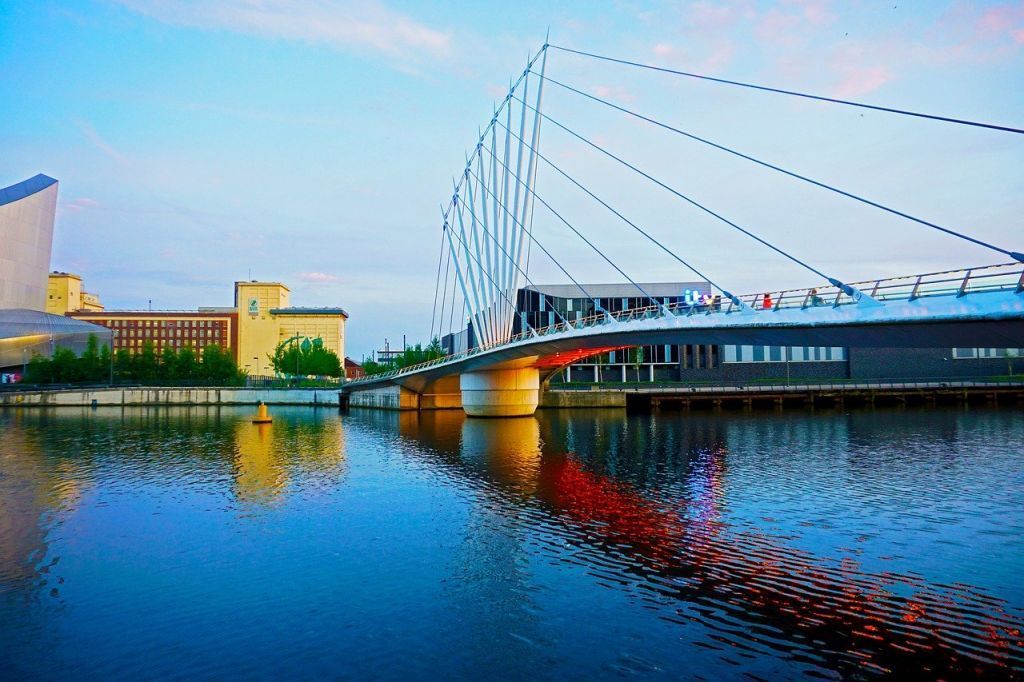The full importance of the North of England visitor economy revealed for the first time, with 25% of all England’s tourism spend taking place in the region.
As the country gets set to celebrate the prime Bank Holiday weekend of the year, a new report by Transport for the North has, for the first time, revealed the full value of the visitor economy to the North’s regional economy.
The Visitor Economy and Transport in the North of England report shows that:
- In 2019, the North accounted for 25% of tourism spending in England – and that goes up to 37% if you don’t count London.
- The total visitor spend across the North in 2019 was estimated at £21.05 billion – with a total net GVA contribution from that of £12.33 billion.
- That came from some 420 million visits in 2019 – six million of which were by international visitors.
- The North’s big cities – Manchester, Leeds, Liverpool, Sheffield and Newcastle – were top of the league for places to go.
- Cumbria and North Yorkshire rank second and third in the UK for the share of economic output attributable to tourism – bettered only by Cornwall.
- The visitor economy provides jobs for 579,000 people and 39,000 businesses – accounting for 8% of total employment in the North – with many more jobs supported indirectly.
- April and August are the most popular months to visit the North for both domestic and international visitors.
The data comes from a report commissioned by Transport for the North for Atkins and Leisure Consultancy Ltd to undertake the first comprehensive pan-Northern study of the visitor economy and its relationship with transport. It will form part of the Sub-national Transport Body’s evidence base when setting out future strategic plans and providing statutory advice on transport in the region.
The Visitor Economy and Transport in the North of England report is available here in full, with a summary also available here.

Martin Tugwell, Chief Executive of Transport for the North, said, ” The Visitor Economy and Transport in the North of England report paints a clear, and very exciting, picture of the value of our region’s visitor economy.
The North has so much to offer – from stunning rural landscapes and incredible coastlines, to cultural hotspots and vibrant cities – it’s no wonder that we saw more than 420 million visits in 2019.
“This research has wider implications. The transport challenges those coming into our region face are the same for our residents and businesses too, particularly in rural areas, so the insights from this work will help build our cases for all manner of projects.
“As we look to build back better and greener, these findings are part of the evidence and insight needed to identify those solutions that will bring the biggest benefits and the most positive outcomes. We must ensure we get the committed investment needed to create a transport network with the speed, capacity and reliability to move these visitors, and our residents, around more effectively. Additional investment could be truly transformative for our economy, our businesses and our people.
“As this year’s “staycation summer” has demonstrated, our region has a lot to offer holidaying Brits, so we must ensure we do everything we can to encourage them to keep coming back.”
Julie Hurley, Client Director at Atkins, said, “Transport is key to supporting the visitor economy, helping people travel to and within the region for business and leisure. Our report makes a number of recommendations which will help boost tourism in the region by making the North of England quicker to get to and much easier to get around.
“We now look forward to working with TfN to implement these recommendations which recognise the importance of putting the travelling public first as we look to generate transformational growth through visitor spend.”
The report identifies a unique opportunity for the North to benefit from increased demand for UK-based tourism and leisure experiences among domestic visitors – particularly important given the increasing numbers of Britons holidaying in the UK rather than abroad. It also highlights the potential challenges with managing this increased demand in a sustainable manner.
It suggests that many residents identified a number of barriers to using public transport for visitor journeys, including high cost of travel/poor value for money relative to using a private car, confusing ticketing options, and restricted levels of service particularly in the evenings and on weekends. It also cited poor connectivity in rural areas, unreliability of services, and different accessibility and inclusion issues particularly for families, passengers with mobility or other health issues, and those travelling with bikes or heavy luggage.
Crucially, the report also adds that Northern Powerhouse Rail and High Speed 2 could provide a step change in connectivity which will increase the attractiveness of the region for domestic business and leisure visitors, while also providing better links to key international gateways such as Manchester Airport and those in other parts of England.
The recommendations intended to make transport easier to use, more sustainable and inclusive, and better aligned to the needs of visitors travelling to and within the North of England, include:
- Increased safety messaging and a communications campaign to support and encourage post-Covid travel on public transport
- Promotion and development of ticket offers and packages
- More reliable and joined-up services that reduce journey times, changes between services, and uncertainty for visitors
- Facilitate easier visitor journeys to and within the North, via customer-centric information, infrastructure and services
- Develop an accessible and inclusive visitor economy
- Provision of better-quality active travel facilities on public transport and at visitor economy hotspots
- A more joined-up approach across the North to better market the region and manage transport demand
The significance of the visitor economy for the North’s prosperity, and the importance of transport for enabling visitor journeys to and within the North, will be discussed at Transport for the North’s third annual conference on Monday 20 September.
The region’s political and business leaders will be considering a number of key topics around levelling up and economic recovery, and also looking at issues such as inclusivity and accessibility, encouraging people back to public transport, and funding transport investment.













